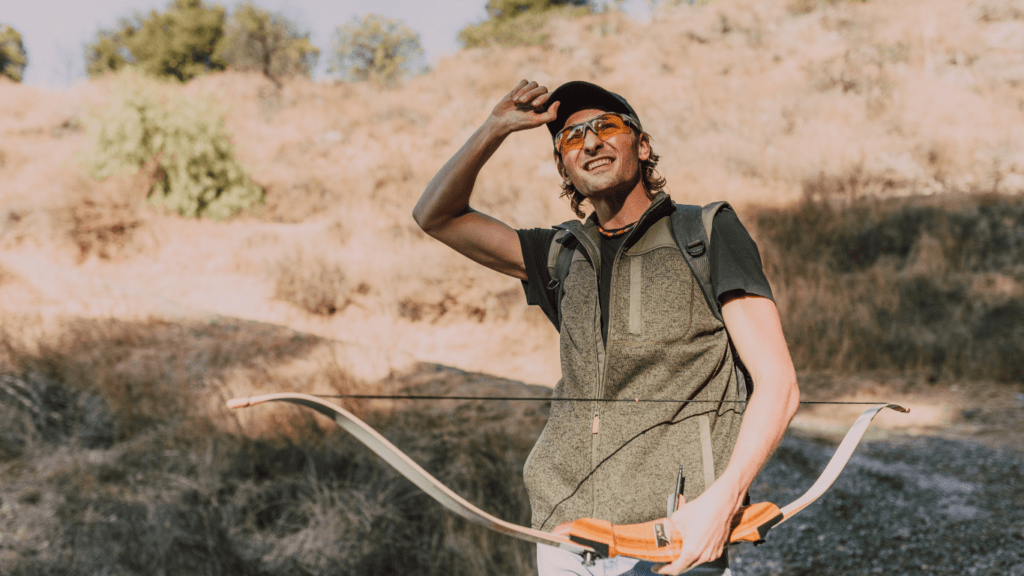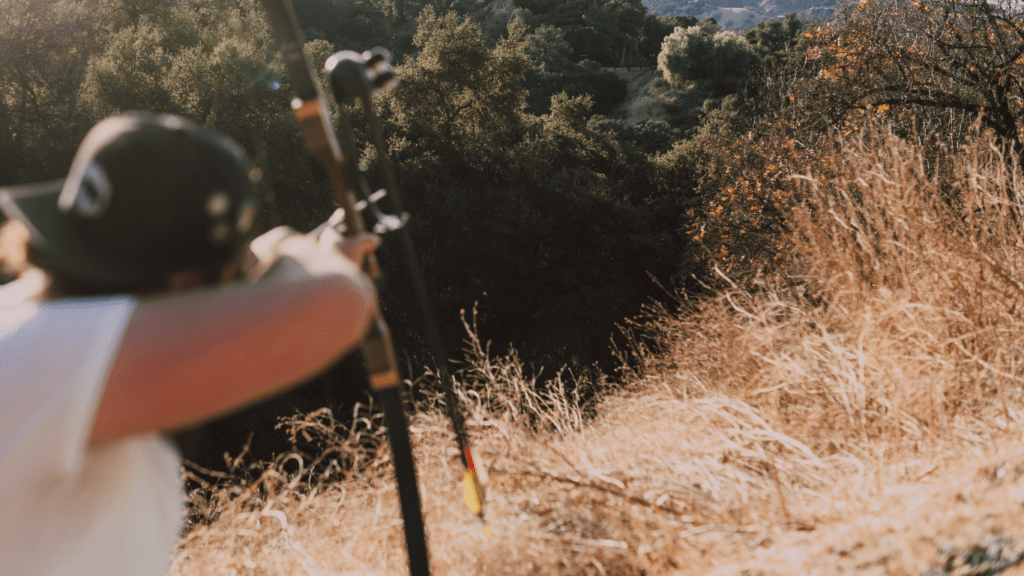When it comes to hunting, the choice between bow hunting and rifle hunting sparks passionate debates among outdoor enthusiasts. As an experienced hunter, I’ve explored the nuances of each method to weigh their respective pros and cons.
Bow hunting offers a primal and challenging experience, requiring stealth, precision, and patience. On the other hand, rifle hunting provides long-range accuracy and higher velocity, making it a popular choice for many hunters.
In this article, I’ll delve into the advantages and disadvantages of both bow hunting and rifle hunting, helping you make an informed decision based on your hunting style and preferences. Let’s explore the exciting world of hunting and discover which method suits you best.
Overview of Bow Hunting and Rifle Hunting
Exploring the dynamics between bow hunting and rifle hunting allows a deeper understanding of the hunting techniques favored by outdoor enthusiasts. As an experienced hunter, I’ll delve into the key aspects of each method, shedding light on their respective advantages and disadvantages. Bow hunting stands out for its primal essence and the demand for stealth and precision, while rifle hunting excels in long-range accuracy and higher velocity. By dissecting these elements, readers can better align their hunting style with the method that resonates with their preferences.
- Benefits of Bow Hunting
Bow hunting offers unique advantages that cater to different preferences and hunting styles. Below are some key benefits of choosing a bow for hunting: - Quietness and Stealth
In my experience, one of the greatest benefits of bow hunting is the quietness it offers. With bows, I can move silently through the woods, minimizing the chances of alerting my prey. The stealth aspect of bow hunting adds an exciting challenge to the hunt, requiring me to be more attuned to my surroundings and make strategic movements.
Closer Encounter with Prey
Bow hunting allows for a much closer encounter with prey compared to rifle hunting. Being in close proximity to the target requires a higher level of skill and patience, making each shot a thrilling and intimate experience. The need to get within a certain range of the animal enhances the connection to nature and the wilderness, providing a more immersive hunting experience.
Benefits of Rifle Hunting
Rifle hunting offers distinct advantages that cater to specific hunting preferences and situations. Here are some key benefits of rifle hunting:
Long Shooting Range
Rifle hunting provides the advantage of a longer shooting range compared to bow hunting. With the ability to accurately shoot targets at significant distances, rifle hunters have a higher success rate in hitting their prey from afar. This extended range enables hunters to maintain a safe distance from the target, which can be particularly advantageous when hunting large game in open terrains where getting close undetected is challenging.
Drawbacks of Bow Hunting
Balancing the scales, I’ll now delve into the drawbacks of bow hunting. While bow hunting has its merits, there are a few limitations to consider as well.
Limited Range:
Archery equipment, by nature, has a limited effective range compared to rifles. When bow hunting, I need to get much closer to my target for a successful shot compared to rifle hunting. This proximity requirement can be a challenge, especially when hunting skittish or easily alerted animals.
Skill and Practice Intensity:
Bow hunting demands a high level of skill and practice to master. It requires a precise shot placement to ensure a quick and ethical kill. For me, honing this level of accuracy and consistency can be time-consuming and may deter beginners from fully embracing bow hunting.
Physical Demands:
Drawing a bow requires a certain level of physical strength and stamina. Unlike rifles that rely on mechanical mechanisms for firing, bow hunting necessitates physical exertion to draw the bowstring fully. This physical demand might limit the participation of individuals with certain physical limitations.
Weather Sensitivity:
Weather conditions can significantly impact bow hunting. Rain or snow can affect the bow’s performance, while wind can alter arrow trajectory, making shots less predictable. I need to be more cautious and adapt quickly to changing weather conditions to maintain accuracy during bow hunting.
Learning Curve:
The learning curve for bow hunting tends to be steeper compared to rifle hunting. Mastering the technique of shooting a bow accurately, understanding arrow flight paths, and becoming proficient in tracking wounded game require time and dedication. The initial challenges in learning bow hunting can be a deterrent for some enthusiasts.
Understanding the drawbacks of bow hunting is essential for making informed decisions and ensuring a rewarding hunting experience. Each limitation presents a unique challenge that hunters must consider and overcome to excel in the art of bow hunting.
Drawbacks of Rifle Hunting
Rifle hunting, while offering advantages such as a longer shooting range and effectiveness in open terrains, comes with its own set of drawbacks that hunters should consider. These limitations can impact the overall hunting experience and success rate in various ways.
Lack of Stealth: With the sound of gunfire, rifle hunting lacks the element of stealth that bow hunting provides. The loud noise can alert other game in the area, potentially scaring them off before a successful shot can be taken.
Regulations and Safety Concerns: The use of rifles in hunting is subject to strict regulations and safety measures. Hunters need to adhere to specific rules regarding firearm handling, including licensing requirements, safety courses, and hunting zone restrictions.
Increased Equipment Weight: Unlike a bow and arrows, rifles are bulkier and heavier equipment to carry while hunting. The added weight can be cumbersome, especially when trekking through challenging terrains for an extended period.
Limited Accessibility: Some hunting grounds have restrictions on the use of rifles due to safety concerns or local regulations. This limited accessibility can hinder hunters who prefer rifle hunting, restricting their options for pursuing game in certain areas.
Environmental Impact: The use of rifles in hunting can have a more significant environmental impact compared to bow hunting. The noise and recoil from firing a rifle can disturb wildlife behavior and ecosystems, affecting the overall balance of the environment.
Cost Considerations: Rifles, ammunition, and associated gear can be more expensive than the equipment used in bow hunting. The cost of maintaining and upgrading rifle hunting gear should be factored into the overall hunting budget.
By understanding these drawbacks of rifle hunting, hunters can make well-informed decisions based on their preferences, hunting goals, and the specific challenges and opportunities present in their hunting environments.


 Ashleyen Gurganusoon, the founder of Terra Tactician Tactics, has always had a profound passion for the great outdoors and a deep-rooted belief in the power of nature to inspire and transform lives. With a background steeped in adventure and exploration, Ashleyen launched Terra Tactician Tactics to share her love for nature and to create a platform where outdoor enthusiasts of all levels can find valuable resources, expert advice, and the latest trends in outdoor activities. Her vision is to empower people to embrace the challenges and beauty of the wild, providing them with the knowledge and confidence to venture safely and enjoyably into nature.
Under Ashleyen’s leadership, Terra Tactician Tactics has become a trusted source for outdoor and survival enthusiasts worldwide. Her dedication to curating high-quality content on camping, hiking, backpacking, fishing, hunting, and adventure travel reflects her unwavering commitment to fostering a community that shares her passion for the outdoors. Ashleyen's approach is driven by her desire to help others experience the joys of nature and adventure while prioritizing safety, sustainability, and respect for the environment. Through Terra Tactician Tactics, she continues to inspire countless individuals.
Ashleyen Gurganusoon, the founder of Terra Tactician Tactics, has always had a profound passion for the great outdoors and a deep-rooted belief in the power of nature to inspire and transform lives. With a background steeped in adventure and exploration, Ashleyen launched Terra Tactician Tactics to share her love for nature and to create a platform where outdoor enthusiasts of all levels can find valuable resources, expert advice, and the latest trends in outdoor activities. Her vision is to empower people to embrace the challenges and beauty of the wild, providing them with the knowledge and confidence to venture safely and enjoyably into nature.
Under Ashleyen’s leadership, Terra Tactician Tactics has become a trusted source for outdoor and survival enthusiasts worldwide. Her dedication to curating high-quality content on camping, hiking, backpacking, fishing, hunting, and adventure travel reflects her unwavering commitment to fostering a community that shares her passion for the outdoors. Ashleyen's approach is driven by her desire to help others experience the joys of nature and adventure while prioritizing safety, sustainability, and respect for the environment. Through Terra Tactician Tactics, she continues to inspire countless individuals.